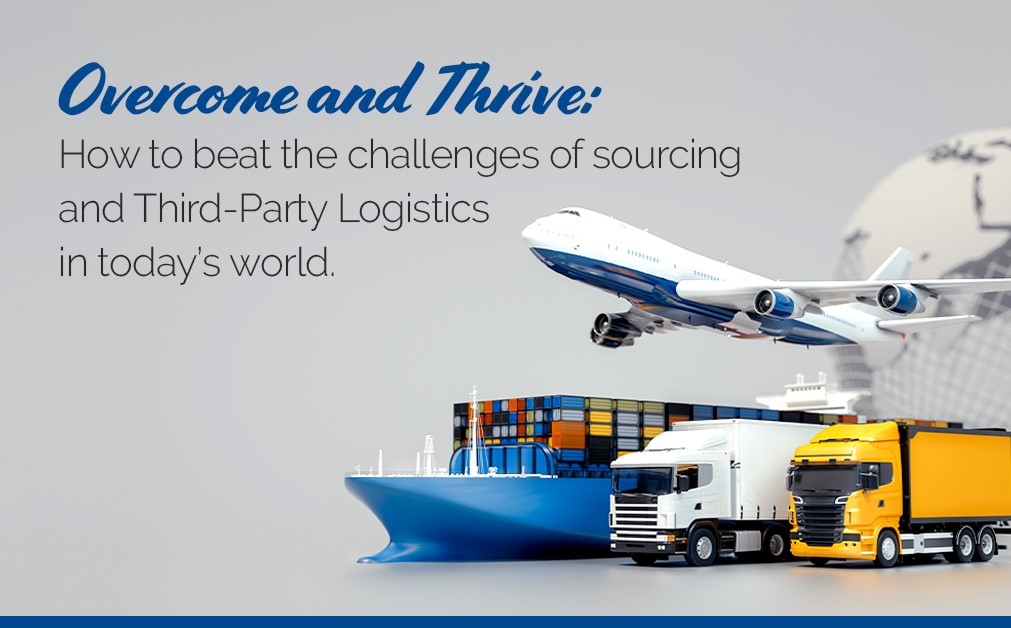Fulfilment is perhaps the most important part of any process, whether it be for eCommerce or sourcing items for a marketing campaign or launch.
It’s the process that gets the product your customers order from your warehouse to their homes or offices, or sourcing and distributing the requirements for a business marketing campaign.
At the moment, your online business’ fulfilment process might be a simple case of you collecting all the products you’ve sold for the day, sticking them in an Australian Post envelope and taking them to the local Express Post box.
But how sustainable will that process be when your business doubles or triples?
How much can you scale with your current fulfilment process?
That’s where a third-party fulfilment service can help.
In this blog, we break down the basics of the fulfilment process, the role a fulfilment service can play and – most importantly – how they can set you up to take on bigger and better orders.
What is fulfilment?
The process of preparing and delivering a customer’s order is referred to as fulfilment. While catalogue firms and bigger operations are generally prepared to manage client order fulfilment in-house, eCommerce organisations and smaller enterprises frequently outsource that element of the business to fulfilment providers.
Fulfilment services for a business can include everything from initial design and print through to sourcing merchandising, managing logistics and distribution directly to the end user.
What steps are taken in the fulfilment process?
A thorough fulfilment process considers all the following.
Receiving inventory: In essence, an eCommerce firm can handle inventory in two ways. It can opt to receive and stock the inventory in-house, or it can outsource the stock and all related activities to an eCommerce order fulfilment outsourcer. If it chooses the first option, the business will be in charge of taking stock, inspecting goods, labelling, and administering the inventory system. If the business chooses to outsource, the order fulfilment partner or supplier will perform these responsibilities.
Inventory storage: If you opt to warehouse the inventory yourself, you will be faced with a new set of responsibilities once the receiving portion is finished. The major duties will be to shelve the inventory and keep a careful check on what things come in and what items go out so that you can despatch the orders on time. This requires investment in monitoring systems, training of staff and allocation of time to manage the inventory closely.
Processing the Order: Businesses that outsource order fulfilment avoid the nitty-gritty of order processing by simply passing on the order request to their partner and letting them handle the rest. They also avoid multiple touch points which can increase the margin for error.
For businesses that control their own inventory, this is the stage at which the order is taken from the shelf, transferred to a packing station, examined for any damage, packed, and moved to the shipping station.
Shipping the Order: The optimal delivery method is calculated based on the order’s size, weight, and special requirements. Typically, a third-party carrier is hired to complete this stage.
Returns management: The ability to readily return undesired products is a key component in the purchasing process for online customers. To guarantee that the receipt, replacement, and refunding of returned products is as efficient as possible, you must create a clear returns policy that is easily available to both your buyers and your personnel. This phase may be automated to assist you prevent unneeded turmoil and mistakes.
When you look at your own fulfilment process, how many of the above steps can you say your current fulfilment caters for?
Are there any that you are missing, or any that you think you could do better?
If so, then you might need to partner with a third-party fulfilment service provider.
What are fulfilment services?
As you may be aware, order fulfilment entails many procedures that must all be followed for the order to arrive at the customer’s door. In practise, a merchant must deal with the full order processing activity to ensure delivery in full and on time.
This is where an order fulfilment platform comes into play.
Ecommerce merchants may use fulfilment centres to outsource warehousing and delivery. This relieves online businesses of the need for physical space to store all items, which is advantageous for merchants that do not have the ability to maintain inventory directly. Therefore, sellers outsource this activity to a fulfilment organisation, which then packs and ships to consumers on their behalf – referred to as Third-party logistics (3PL)
Inventory management is a common operational issue for many online shops, but it is a necessary component of providing the best possible consumer experience. Fulfilment centres simplify inventory management and provide store owners more time to focus on other aspects of their business.
In essence, a fulfilment business provides services that focus and specialise on preparing your items for shipment.
When a shop wishes to grow their business, a 3rd party fulfilment service comes in useful to a greater level. Consider it an exceptional approach to fulfil the ever-increasing client demand. Most significantly, you must consider all inventory management processes. When you leave inventory to the professionals, you can never go wrong.
What are the benefits of the fulfilment services?
There are many benefits of outsourcing your fulfilment services to a third-party provider.
Lower Shipping Costs:
Many order fulfilment companies partner with freight and shipping companies that have locations across the county and abroad. These partnerships lay the groundwork for cheaper shipping prices, resulting in bulk delivery reductions.
While it depends on the order fulfilment service you pick, you may save anywhere from 15% to 35% off stated shipping prices on average. Fulfilment companies also have software that allows them to compare shipping prices from several carriers and choose the most cost-effective option.
Improve Customer Service:
Customer service that is dependable is a vital element of operating a business. Many order fulfilment companies give email or phone assistance 24 hours a day, seven days a week. This includes facilitating simple returns, swaps, and reimbursements.
Fulfilment services can also assist merchants in meeting the changing expectations of their customers. Statistics show that almost half (49%) of customers believe same-day delivery and shipping choices entice them to shop online from a certain company.
The Pegasus Difference:
One important aspect that differentiates Pegasus’ fulfilment services from other third party fulfilment providers is our ability to consolidate your process and cover everything from printing, packing, warehousing and logistics all with one company.
With all these vital services under one roof, you get greater transparency, greater convenience, and greater accountability. Our bespoke online technology provides real-time stock levels, inventory management options, reporting and traceability – meaning you can log into your account and track the status of the orders we handle on your behalf.
All for a consolidated cost and guaranteed to give you peace of mind.
Ready to Scale? Let’s chat
Of course, one of the biggest benefits of a third-party logistics service is the scalability it provides your business.
At Pegasus, we are passionate about helping our clients scale and grow their businesses with our holistic range of services.
Ask about our case studies to see how we have helped countless businesses reduce costs, streamline their business and optimise their processes.




